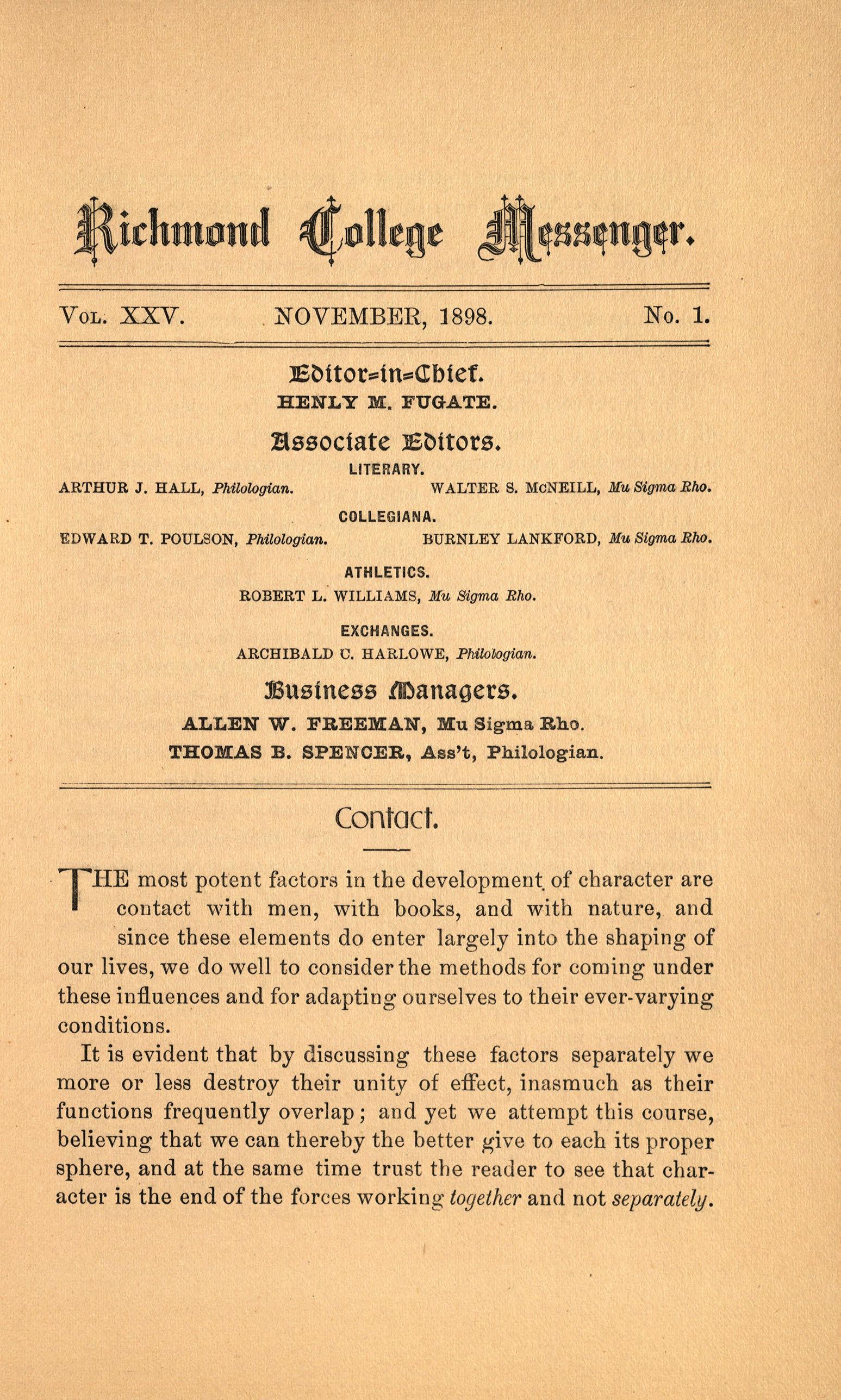JOSEPH ADDISON.
5
always to their better natures. With these facts in mind, let us put ourselves under its benign influence, hoping that we too may some time learn to rightly interpret the voices that we do not now understand, but which then will be to us a growing inspiration: 0, Life, what is thy mission! 0, Future, what wilt thou bring ! are the questions that we ask over and over again and which are never answered directly, and yet we hear each time the solemn command, "Use well thy time and talents and all will be well." Then, and then only, will human development in its highest type be realized, and Contact have worked out its best results.
Joseph Addison. many respects, the subject of this sketch IN ver_y front rank among all of our English
stands in the writers, and a careful study of his works will prove exceedingly beneficial. Joseph Addison was born in the year 1672. His father was the Reverend Lancelot Addison, D. D., a man who rose to considerable prominence in the ministry. When Joseph was a boy, he attended school in the neighborhood of bis home, after which he was sent to Charter House. He applied himself closely and made rapid progress in his studies. A~ the age of fifteen he entered Queen's College, Oxford, but did not remain here long; for, through the influence of Dr. Lancaster, Dean of Magdalene College, be was admitted to that noted school. Here he sustained his reputation as a hard student, and stood high in his classes. Especially was be at home with the Latin poets, and copied their style with great skill. During the summer of 1699, Addi.son was sent to the Continent, by some of his friends among the prominent Whig leaders, to prepare himself for diplomatic service. He resided in Paris for a while. But trouble arising between the French and English, life in Paris became so distasteful to him that he










